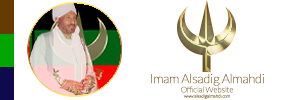Freedom of Association in the Arab World
Sadig Al Mahdi
As Sharq Al Awsat
For the original in Arabic, please click here
February 19, 2007
Freedoms such as political assembly, association and organization are important on a global scale. These are evidenced by international human rights standards established in 1948 as part of the core of democratic standards.
Freedom of association does not exist fully in any of the Arab countries. It has been pursued in other areas of the world such as Southern Europe, Latin America, Eastern Europe, Africa south of the Sahara, and a lot of Islamic countries in Africa and Asia.
We have seen in the last two years in places like Beirut, Doha and Sana’a popular movements calling for democracy, and leaders all over the world are encouraging the Middle East to continue and join a similar trend.
The US has been in the lead in pushing for democratic change in the region and it has been a large part of its foreign affairs agenda. Condoleeza Rice said during her trip to Cairo in 2005 “For 60 years we have pursued stability in the region at the expense of democracy and as a result it is absent. Today, US policy has changed and promoting democracy is of utmost importance to us”. However, the US foreign policy and actions haven’t followed suit due largely to two things: Terrorism and political Islam.
Iraq has been a political experiment as it is supposed to be a country that is being transformed to a democracy from an autocracy. It has, however, failed. In an effort to quell and control “terrorism” the US has only further empowered the autocrats in the region. Israel has only grown increasingly aggressive and further assisted in destabilizing the area at the same time, with its recent actions at the Al Aqsa Mosque. The shadow of civil war now in Palestine is a result of Hamas winning the elections. The Israeli war against Lebanon and Hezbollah is leading to internal fighting in Lebanon. The troubles relating to the Iranian Nuclear program are escalating. US behaviour relating to the crisis in Darfur, dealings with various factions within the Sudanese government, including recently helping to ignite a civil war in Somalia and involving the Ethiopians, are also very troubling. All of these things have ruined their past diplomatic and political efforts in the Arab world.
Last week, February 2007, the Club of Madrid along with FRIDE, the Center for Strategic Studies from the University of Jordan and Maroc 2020 from Morocco held a strategic planning meeting in Cairo to discuss the most important issues and players linked to democratic issues such as freedom of association and assembly in the Arab world. With the power of the Club´s former Heads of State, people that have been involved in similar reforms in their own countries and people with a lot of political clout, the discussions revolved around leading a political and diplomatic effort to strengthen freedom of association in several countries. This project will last for 2 years and will focus first on three countries that are currently engaging in reform. The Club will pursue an agenda of working to strengthen the freedom of association in countries with monarchies- not solely focusing on pushing for constitutional monarchies, but working to improve freedom of association and strengthening the relationship between the monarchies and the citizens. This project will work to understand and develop the best strategies for working with these governments and understanding the opinions of these countries’ citizens to help to bring democratic reform.
Freedom of association is one part of political reforms that will take the cooperation of all groups and parties and will test the real and not just adopted democracy of a nation.

